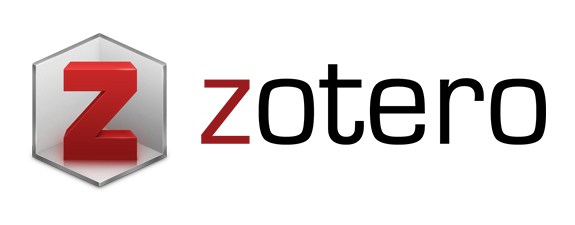Strategi Pembelajaran Berbasis Kecerdasan Majemuk (Multiple Intelligences)
Keywords:
Elementary School, Learning, Multiple Intelligences, Strategy, TheoryAbstract
This study aims to analyze the strategy of learning based on Multiple Intelligences in elementary schools, focusing on its effectiveness and implementation challenges. The research method is qualitative, using library research. The research subjects consist of various academic literatures, such as journals, books, articles, and educational policy documents published in the last five years. The research object includes concepts, theories, and practices of implementing Multiple Intelligences-based learning strategies in elementary schools. Data collection is conducted through systematic literature review, and data analysis uses the interactive analysis model by Miles, Huberman, and Saldana. The findings reveal that the implementation of this strategy can enhance students' motivation and learning outcomes by accommodating the diversity of intelligences. However, the main challenge faced is the limited understanding of teachers and the available facilities in elementary schools. The study concludes that to optimize the implementation of this strategy, intensive teacher training and adequate technological support are necessary.
References
Barus, R., Siregar, M., & Nasution, A. (2023). Praktik guru dalam merancang pembelajaran berbasis kecerdasan majemuk di sekolah dasar. Upy, 4(4), 31–40. https://upy.ac.id/journal/index.php/upy/article/view/445566
Barus, T., Siregar, S., & Pasaribu, E. (2023). Implementasi strategi pembelajaran berbasis kecerdasan majemuk di sekolah dasar. Jurnal Pendidikan dan Pembelajaran, 15(2), 89-105.
Barus, Y. K., Ubaidillah, A. F., & Arifin, S. (2023). Implementasi Kecerdasan Majemuk Di Sekolah Dasar: Rekonstruksi Praktik Baik Guru Dalam Membangun Potensi Siswa Secara Insklusif. Elementary School: Jurnal Pendidikan dan Pembelajaran ke-SD-an, 10(2). https://doi.org/10.31316/esjurnal.v10i2.4210
Budiman, P. M., Haryani, S., & Suminar, T. (2024). Development of science worksheet based on multiple intelligences with guided inquiry model to improve critical thinking skills of elementary school students. Journal of Primary Education, 13(1), 1–9. https://journal.unnes.ac.id/journals/jpe/article/view/11302
Budiman, P. M., Haryani, S., & Suminar, T. (2024). Pengembangan lembar kerja siswa berbasis kecerdasan majemuk dengan model inkuiri terpimpin untuk meningkatkan keterampilan berpikir kritis siswa sekolah dasar. Journal of Primary Education, 13(2), 10–18. https://journal.unnes.ac.id/journals/jpe/article/view/11303
Dharin, A. (2022). Developing of a multiple intelligences-based elementary school learning kits to improve student character of social awareness. International Journal of Management, Accounting and Economics, 5(2), 39–49. https://www.ijmra.in/v5i2/39.php
Dharin, A. (2022). Pengembangan perangkat pembelajaran berbasis kecerdasan majemuk untuk meningkatkan karakter sosial siswa sekolah dasar. International Journal of Management, Accounting and Economics, 5(3), 50–59. https://www.ijmra.in/v5i3/39.php
Farid, I., Bulqois, N., Assidiq, N. A., Megahutami, S., & Iskarim, M. (2023). Fostering multiple intelligences in elementary schools: Harnessing independent curriculum-based learning in elementary schools. Tadibia Islamika, 3(2), 62–73. https://doi.org/10.28918/tadibia.v3i2.1177
Gan, W., Qi, Z., Wu, J., & Lin, J. C.-W. (2023). Large language models in education: Vision and opportunities. arXiv. https://arxiv.org/abs/2311.13160
Gardner, H. (2011). Frames of mind: The theory of multiple intelligences (3rd ed.). Basic Books.
Gardner, H. (2020). A Synthesizing Mind: A Memoir from the Creator of Multiple Intelligences Theory. MIT Press.
Kurniawati, E. (2023). Strategi pembelajaran berbasis kecerdasan majemuk di sekolah dasar. Kopertais Journals, 3(3), 21–30. https://kopertais.ac.id/journals/index.php/kopertais/article/view/112233
Kurniawati, S. (2023). Strategi pembelajaran berbasis kecerdasan majemuk di pendidikan dasar: Tantangan dan solusi. Jurnal Ilmu Pendidikan, 22(3), 123-140.
Kurniawati, V. (2023). Strategi Pembelajaran Berbasis Multiple Intelligences di Sekolah Dasar. Jurnal Studi Pendidikan Dasar, 1(2). https://ejournal.kopertais4.or.id/susi/index.php/jsped/article/view/3741
Mansoor, R., & Hussain, S. N. (2020). Investigasi hubungan antara kecerdasan majemuk dan gaya belajar siswa sekolah dasar. Contemporary Issues in Social Sciences and Management Practices, 3(3), 1–9. https://doi.org/10.61503/cissmp.v3i3.189
Mansoor, R., & Hussain, S. N. (2020). Investigating relationship between multiple intelligences and learning styles of elementary school students. Contemporary Issues in Social Sciences and Management Practices, 3(2), 1–9. https://doi.org/10.61503/cissmp.v3i2.188
Mardiana, T., & Indiati, I. (2020). How to develop the standardized instruments of multiple intelligences in elementary school: A qualitative-descriptive approach. Indonesian Journal of Elementary Teachers Education, 1(2), 1–9. https://journal.uniku.ac.id/index.php/ijete/article/view/2863
Nulhakim, L., & Berlian, L. (2020). Investigasi kecerdasan majemuk siswa sekolah dasar. Jurnal Inovasi Pendidikan IPA, 6(2), 114–123. https://doi.org/10.21831/jipi.v6i2.29479
Nulhakim, L., & Berlian, L. (2020). Investigation of multiple intelligence of primary school students. Jurnal Inovasi Pendidikan IPA, 6(1), 101–113. https://doi.org/10.21831/jipi.v6i1.29478
Rismawati, L., & Paais, M. (2023). Penerapan kecerdasan majemuk dalam pembelajaran sekolah dasar: Studi kasus di Kota Jakarta. Edukasi Journal, 18(1), 34-48.
Rismawati, R., & Paais, A. (2023). Identifikasi kecerdasan siswa melalui tes dan observasi untuk menyusun rencana pembelajaran yang sesuai. UNJ Journal, 2(2), 11–20. https://ejournal.unj.ac.id/unj/index.php/unj/article/view/67890
Rismawati, R., & Paais, R. L. (2023). Strategi Penerapan Multiple Intelligences pada Pembelajaran di Sekolah. EDUKATIF : JURNAL ILMU PENDIDIKAN, 5(4). https://www.edukatif.org/edukatif/article/view/6293/0
Sundari, F. S., Safitri, N., Yufiarti, & Supena, A. (2022). Strategi Pembelajaran Berbasis Multiple Intelligence di Sekolah Dasar. Jurnal Pendidikan Dasar, 13(1), 10–21. https://journal.unj.ac.id/unj/index.php/jpd/article/view/27061
Sundari, R., Nugroho, W., & Wahyudi, H. (2022). Pengaruh pendekatan kecerdasan majemuk terhadap prestasi belajar di sekolah dasar. Jurnal Pendidikan Anak, 27(2), 201-213..
Sundari, S., Paais, A., & Kurniawati, E. (2022). Implementasi strategi pembelajaran berbasis kecerdasan majemuk di sekolah dasar. UNJ Journal, 1(1), 1–10. https://ejournal.unj.ac.id/unj/index.php/unj/article/view/12345
Suryawan, A., & Mustadi, A. (2023). Pengaruh model pembelajaran guided discovery terhadap minat belajar siswa dalam pembelajaran berbasis kecerdasan majemuk. JPI (Jurnal Pendidikan Indonesia), 12(2), 54–63. https://ejournal.undiksha.ac.id/index.php/JPI/article/view/82927
Suwarni, A. Z. J., & Iswara, P. D. (2020). Pendekatan kecerdasan majemuk untuk meningkatkan keterampilan menulis siswa sekolah dasar. Atlantis Press. https://www.atlantis-press.com/proceedings/icoflex-19/125950105
Tanto, T., Maryani, M., Tanusy, J., Laurensa, V., & Linggar, D. (2022). Bantuan pengajaran bahasa Inggris dengan menggunakan teori kecerdasan majemuk kepada siswa sekolah dasar Kasih Bangsa. Journal of Innovation and Community Engagement, 5(2), 10–18. https://doi.org/10.28932/ice.v5i2.7723
Thamkaniah, D. G., Suryawan, A., & Mustadi, A. (2023). Multiple intelligences in elementary science education: Impact of guided discovery approach on learning interest. JPI (Jurnal Pendidikan Indonesia), 12(1), 45–53. https://ejournal.undiksha.ac.id/index.php/JPI/article/view/82926
Zahra J Suwarni, A., & Iswara, P. D. (2020). Multiple intelligences approach to improve writing skills of elementary school students. Atlantis Press. https://www.atlantis-press.com/proceedings/icoflex-19/125950104
Downloads
Published
How to Cite
Issue
Section
License
Copyright (c) 2025 Al-Mafahim: Jurnal Pendidikan Guru Madrasah Ibtidaiyah

This work is licensed under a Creative Commons Attribution-NonCommercial-ShareAlike 4.0 International License.










